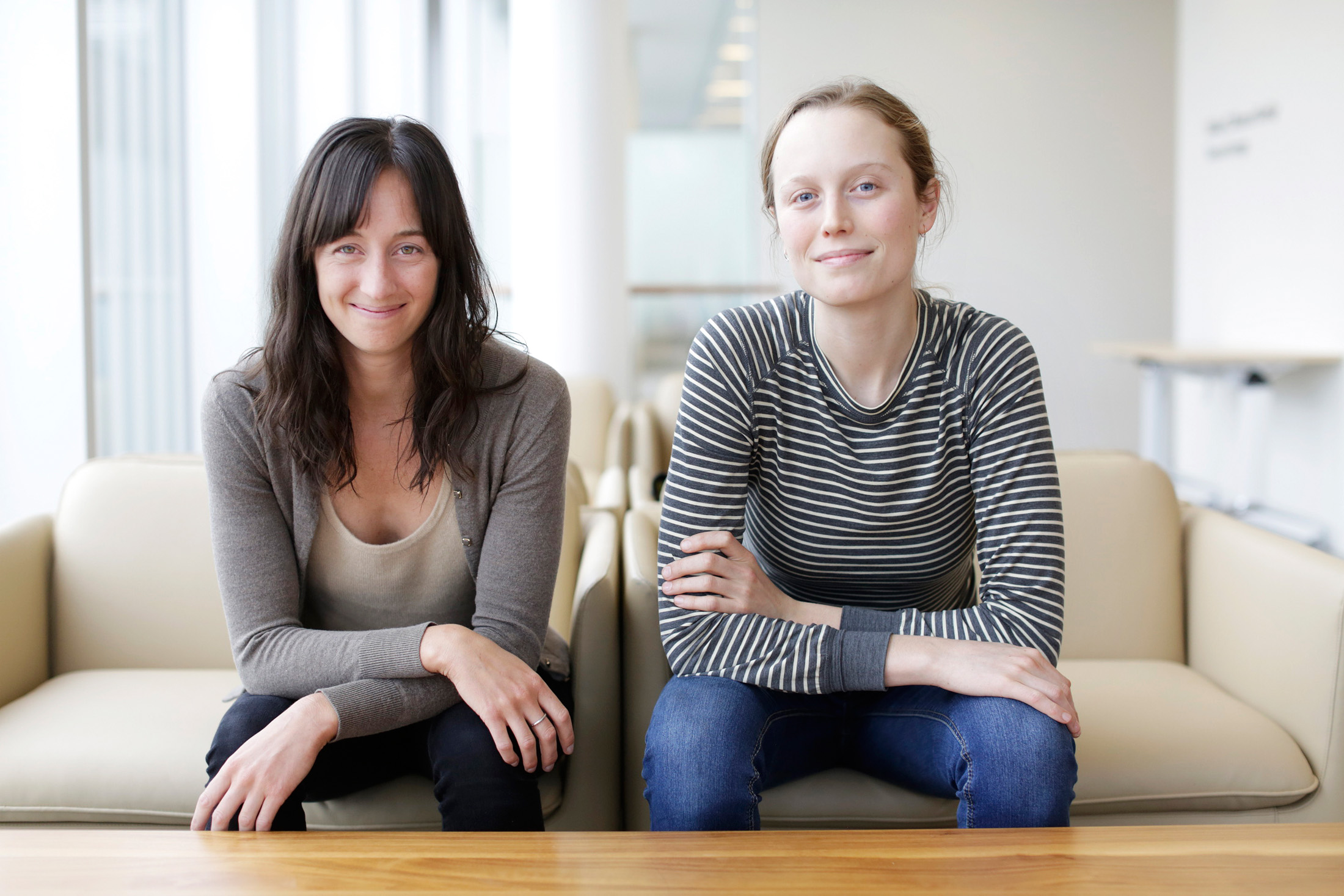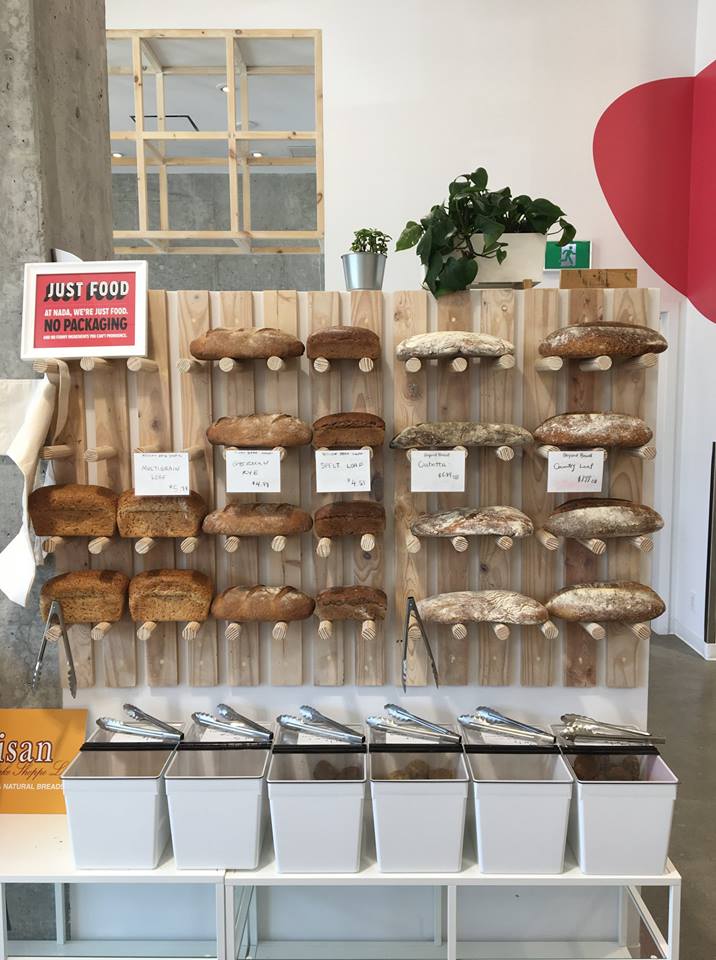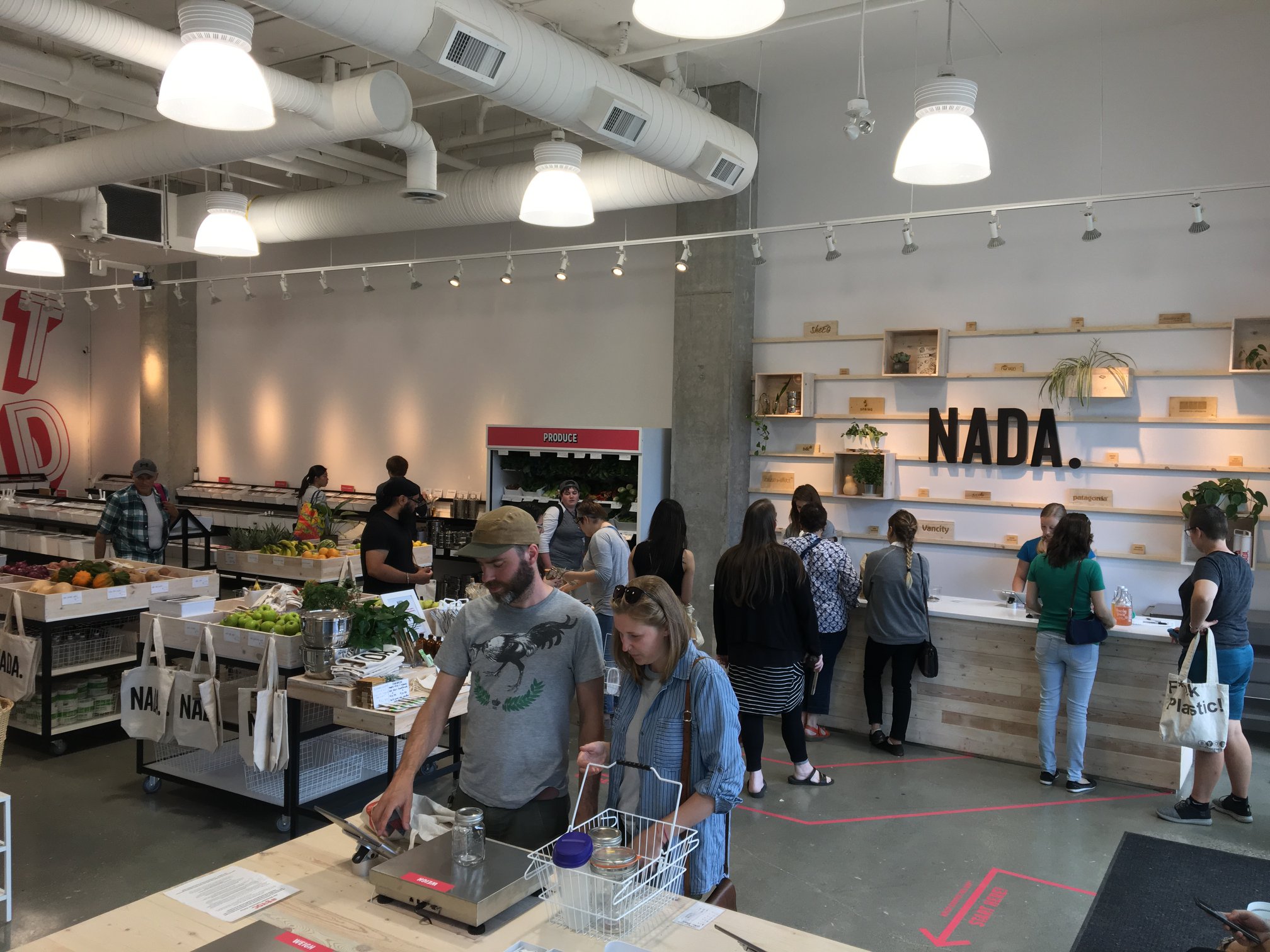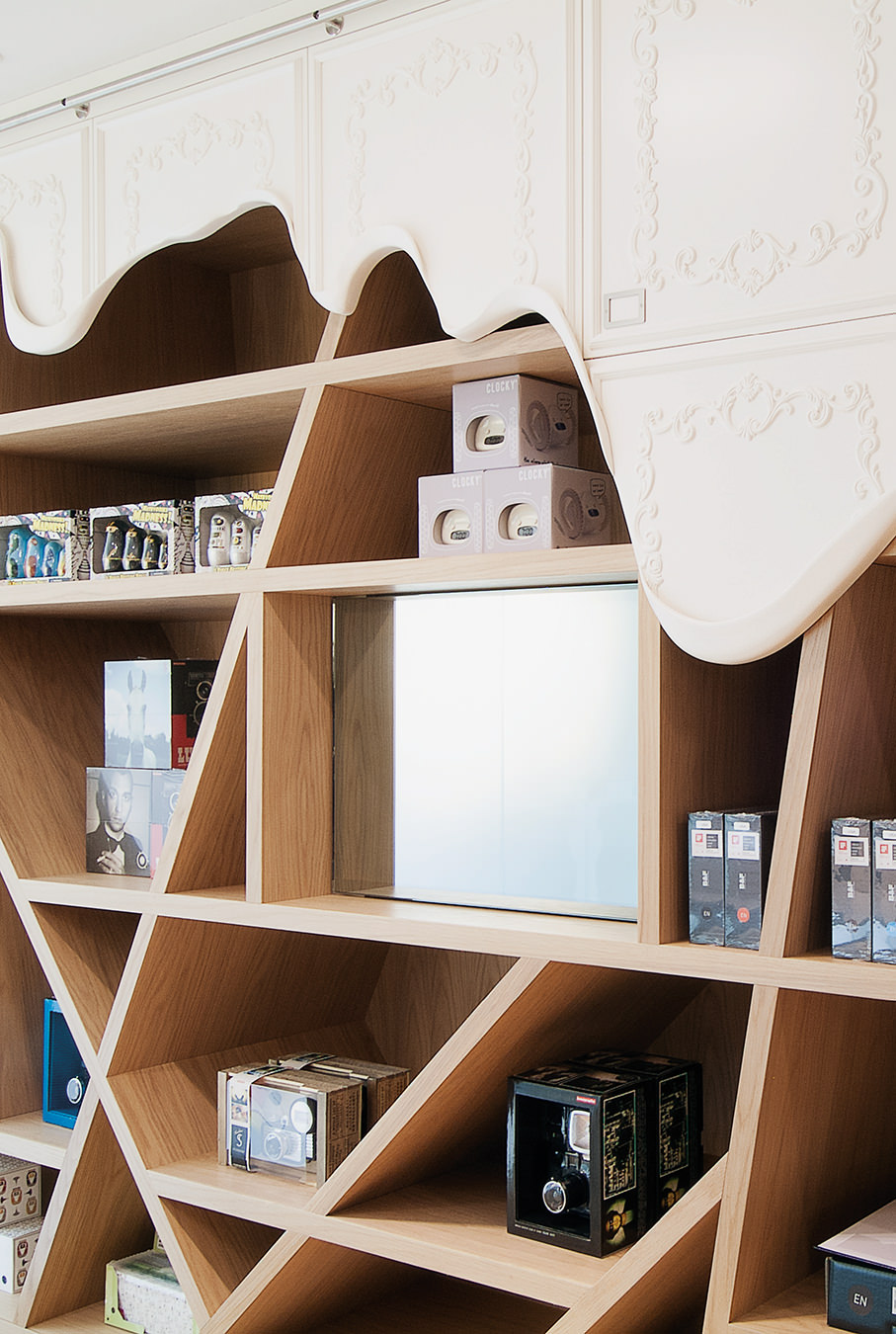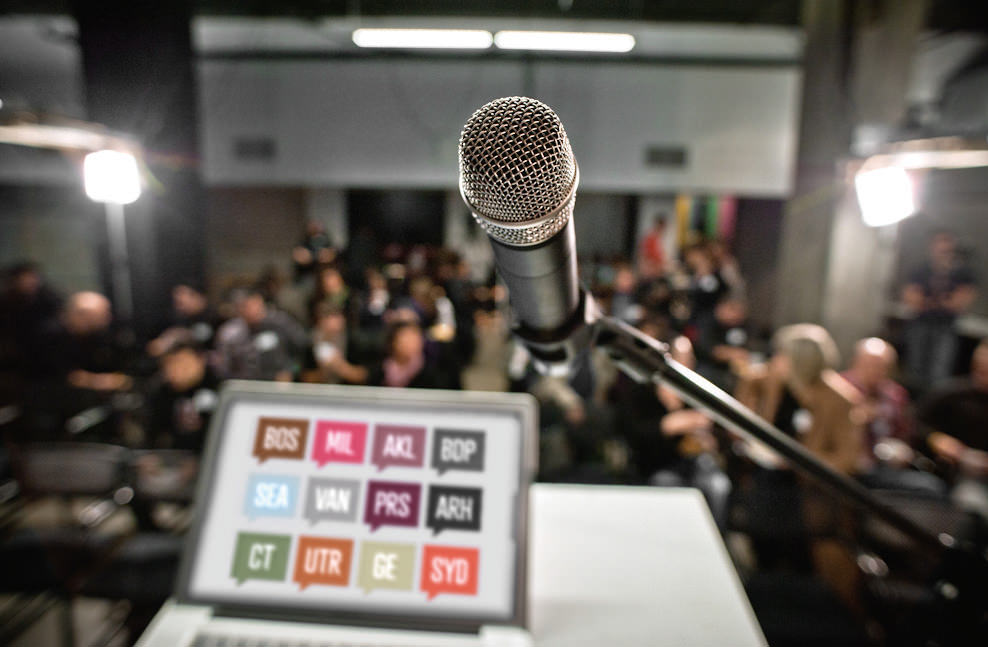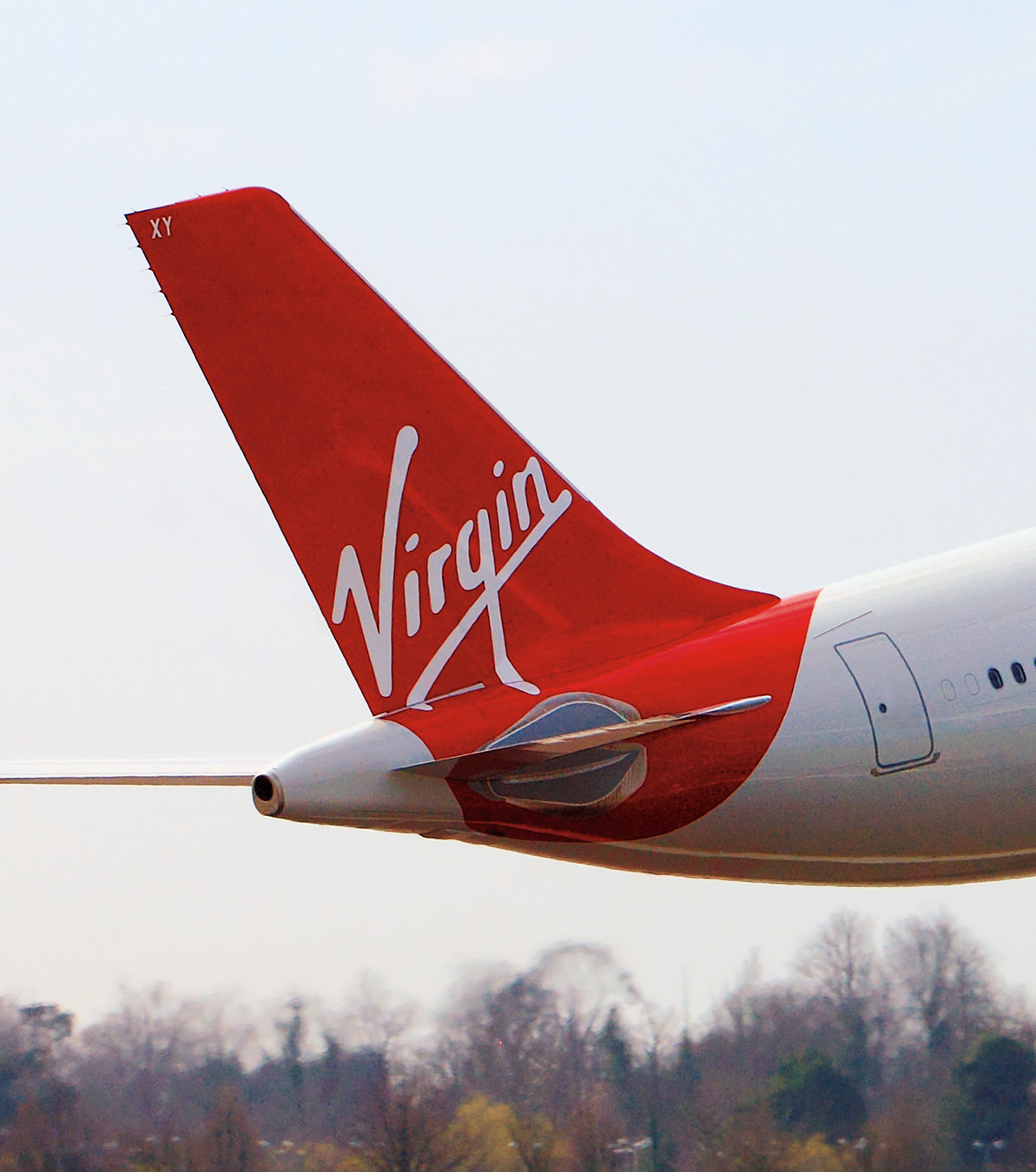Nada, Vancouver
The city's first package-free grocery store.
The first modern grocery store, Piggly Wiggly, opened its doors in Memphis, Tennessee in 1916. Founder Clarence Saunders had a vision for his venture: a shop where customers were free to roam aisles and pick out their own products rather than relying on a clerk behind a counter to retrieve and package items. Piggly Wiggly revolutionized the way people experienced their weekly trip to the shops and gave rise to the now ubiquitous supermarkets most of us take for granted. Now, a century later, a new kind of grocery store format is on the horizon. On the frontlines of the movement is Vancouver’s package-free grocery store Nada, the first of its kind in the city.
Here, you won’t find towering shelves stacked with 10 brands of laundry detergent in plastic jugs, nor refrigerators filled with meat on plastic-wrapped Styrofoam trays. Instead, customers bring their own containers (Mason jars, cloth bags, glass bottles, and reusable plastics) to be filled with bulk dry goods like sustainably-sourced lentils, nuts, grains, and gourmet rice pastas. Also in stock are artisanal teas by Namasthe Tea Co., bars of Denman Island Chocolate, and honey from urban apiary Hives for Humanity. Fresh sourdough from Lakehouse Foods sits on a custom-made pegboard, with an assortment of cheeses, sauces, dips, and ferments nearby. There’s local, seasonal produce and eggs in the cooler, and in the freezer, glass jars of ice cream join boxes of berries and blocks of Nuez nut milk. In the personal care section, Nada stocks locally made soap and shampoo bars, liquid conditioner in a pumpable six-gallon bucket, and even a bentonite clay face mask by Vancouver-based body care brand Plenty + Spare which customers can scoop into their own vessels.
Miller and Carr are committed to running a zero-waste business that’s built on the ethos of infrastructure-changing sustainability.
Nada began as Zero Waste Market, a pop-up at Patagonia’s West 4th Avenue store. Founders Brianne Miller and Alison Carr are both advocates of the zero-waste movement, a lifestyle popularized by bloggers like Lauren Singer of Trash is for Tossers, whose yearly landfill-bound trash famously fits into a Mason jar. The premise of the movement is to reduce one’s consumption of single-use disposable products and to be mindful of the impact consumer choices have on the earth.
Miller and Carr are committed to running a zero-waste business that’s built on the ethos of infrastructure-changing sustainability. To this end, they have even devised a strategy to decrease the use of large plastic bulk bags, which run-of-the-mill grocers use to transport and store the goods they sell in their bulk aisles. “We’ve implemented a system where all of the bulk bins that we have on the floor are swappable,” says Carr. “They have flip lids for in-store use and sealed lids for out of store use. We have a sign-out system where suppliers come with a full bin of product, we put that on the floor with a flip-lid, and then we give them a new, clean bin.”
Over the last few years, concern about plastics entering and staying in the environment has gained more visibility. Evidence of the dangerous impact of our prolific use of plastic products can be seen in the Great Pacific Garbage Patch, 1.6 million square kilometres of plastic trash that has collected in an ocean gyre. Objects made out of polyethylene terephthalate like water bottles, yogurt tubs, and even polyester clothing do, in fact, degrade in the ocean due to exposure to both sunlight and salt water. The trouble is, the resulting micro-plastics are ingested by oceanic organisms and cause problems at all levels of the food chain, disrupting many marine ecosystems.
“The quality of our oceans really depends on our current food system.”
However, it’s not only plastic detritus from food packaging that’s causing a strain on our oceans—our entire grocery structure, facilitated by Saunders’ shopping innovation, has implications on the health of the environment. Miller, previously a marine biologist, witnessed the impact plastic pollution firsthand. “The quality of our oceans really depends on our current food system,” says Miller. “The problems that I was seeing in the oceans were either directly or indirectly linked to growing, selling, and transporting food.” Supermarkets provide access to a seemingly infinite array of products, most of which embark on long journeys from creation to sale. “For example, we rely very heavily on food shipped from all over the world. Not a lot of people think about it, but shipping traffic actually has a big impact on coral reefs and fish.”
Instead of sourcing products from across the ocean, Nada looks to businesses that are close to home. “We want to give our support to local growers who can provide information about the way in which things are grown. You don’t really see that kind of information outside of farmers’ markets,” says Carr. While fruit, vegetables, and even meat and dairy products have traceable production pathways, information about bulk food products is not as available. “People don’t typically think about where their lentils come from and it’s not really common to ask questions at the grocery store,” says Carr. “We really wanted to change that mindset.” Miller agrees, “I want to support a more just food system, a more transparent food system.”
A turn towards smaller grocers purveying a limited selection of local products is exciting—particularly in the case of Nada, with its package-free approach. Nada is the Piggly Wiggly of our generation, and Miller and Carr intend to incite a wide-reaching shift in the old grocery model. “Some people say policy change is the only thing that’s going to make a difference,” says Carr, “but there are people that we’ve influenced over time with our own efforts to reduce waste in our own lives, and that’s pretty powerful, too.”
_________
Never miss a story. Sign up for NUVO’s weekly newsletter, here.


